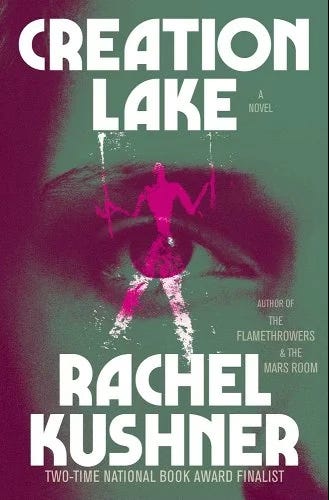Rachel Kushner’s Creation Lake
Loved by prize committees. Panned by critics. Here’s where I landed.
One of my most anticipated books of the year, Rachel Kushner’s Creation Lake was longlisted for both the Booker Prize and the National Book Award months before its launch. As I think has become typical with Kushner, the mega-attention and high prestige profiles leading up to the book’s release were met with pushback from the critics.
And true to form, knowing this only leads to regret but unwilling to resist, I let myself be sucked into the discourse before I’d even opened the book. Note to self: request an advance copy next time. The criticism impacted my experience of the book and I need to talk about it.
Can you offer some literary therapy today?
NO, BRANDON, I DON’T CARE
If you’re on the fence or haven’t yet heard anything about this book, I have read all the criticism and here’s where I landed.
It’s true. The Creation Lake marketing copy, implying a noir spy novel, sets the casual reader up for disappointment. Creation Lake depicts spycraft as a job that involves a lot of waiting a…
Keep reading with a 7-day free trial
Subscribe to The Booktender to keep reading this post and get 7 days of free access to the full post archives.




